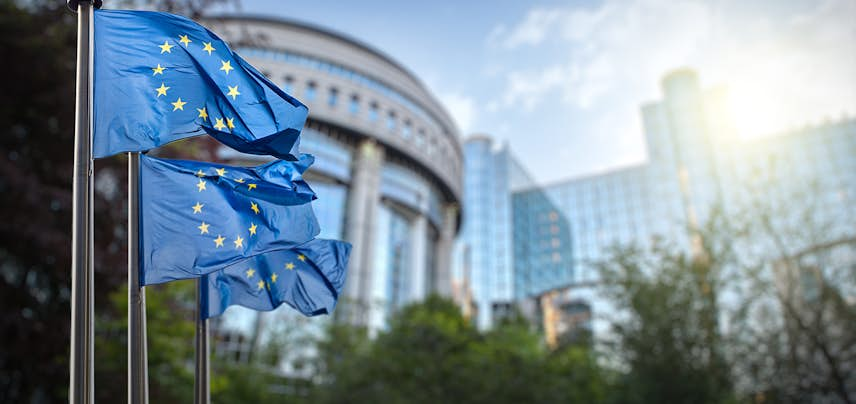European Union
The negotiations that started in September 2018 for a successor agreement to the Cotonou Agreement have continued in the Council of the European Union (EU) and with the Africa Caribbean and Pacific (ACP) countries. Following the political agreement of October 2020, the agreement was initialled in April 2021 by the chief negotiators of the EU and the ACP countries, marking the end of formal negotiations. It should be noted that, because of delays, the current agreement has had to be extended until 30 June 2023 and transitional measures have been put in place to avoid a legal vacuum pending the formal signing of the Post-Cotonou agreement, expected to take place in 2023.
The Council continued to follow up on the new “Neighbourhood, Development and International Cooperation Instrument — Global Europe” (NDICI). With a total budget of EUR 79.5 billion (in 2018 prices) for the years 2021 – 2027, EUR 14 481 million was disbursed in 2021 for official development assistance (ODA), representing 97% of the EU external action budget. Luxembourg, which defended the maintenance of a significant proportion of the external budget for ODA during the discussions on the introduction of the new instrument, therefore welcomes this outcome, which goes well beyond the 93% targeted by the NDICI regulation. The year 2022 also saw the start of implementation of the European Fund for Sustainable Development Plus (EFSD+), the new European Union investment instrument. In the first call for tenders, 20 European development finance institutions received budget guarantees totalling EUR 6.05 billion.
Under the French Presidency of the Council of the EU from January to June 2022, discussions focused on the harmful consequences for developing countries of the Russian war of aggression against Ukraine. During the negotiations for the Council conclusions in connection with the European response to global food insecurity, Luxembourg sought to ensure strong support for the least developed countries (LDCs) and those most affected by increasing insecurities. To that end, the EU Member States urgently mobilised EUR 600 million through funds de-committed from the 10th and 11th European Development Funds (EDF) in May 2022.
Outside the developing countries, the EU has shown solidarity with Ukraine and has repeatedly expressed its willingness to support Ukraine as long as necessary. At the humanitarian level, the EU has so far supported Ukraine with EUR 485 million, of which EUR 371 million has already been paid out. Luxembourg’s contribution in this area amounts to EUR 12 224 500, including EUR 4 million for contributions in kind (such as telecommunications and medical equipment).
As a priority of the French Presidency, the EU Council adopted conclusions on the EU’s renewed partnership with the LDCs. During the negotiations for this text, Luxembourg recalled the commitments of all EU Member States set at UN level to bring their allocations to LDCs to 0.20% of gross national income, in the long term. While it abides by this figure, Luxembourg encouraged other EU Member States to increase their contributions to official development assistance to effectively combat (extreme) poverty.
The Czech Presidency of the Council of the EU from July to December 2022 focused on better coordination between humanitarian activities and development cooperation, notably through the production of a practical guide on the implementation of the humanitarian-development nexus. In addition, the Council succeeded in adopting conclusions on disaster risk reduction and the youth action plan 2022 – 2027. Together with its like-minded partners, Luxembourg was particularly committed to promoting gender equality during the negotiations of these Council conclusions, in full accordance with its feminist foreign policy.
With the launch of the European Commission’s new Global Gateway strategy in December 2021, 2022 also served to integrate the Team Europe approach into this new geopolitical strategy. The Global Gateway seeks to go beyond traditional development cooperation by trying to align European strategic interests with the interests of our partners. Thus, the Global Gateway has five key areas, namely the digital sector; climate and energy; transport; health; and education and research. This new external investment strategy actively seeks to do more to incorporate the private sector, with the aim of broadening the financing bases of its external action. Thus, the Global Gateway should enable the EU’s partners to develop their societies and economies, but should also enable the private sectors of EU Member States to invest and remain competitive, while abiding by the highest environmental and labour standards, as well as sound financial management. In this context, the European Commission expects that Team Europe, i.e. the institutions, the EU Member States and the development banks, will mobilise up to EUR 300 billion in investments in the five above priority areas by 2027. The Global Gateway is a strategy to be implemented jointly by all members of Team Europe, including all contributions under the NDICI — Global Europe and the EFSD+, as well as those made by the Member States. Luxembourg is actively contributing to this through its participation in various Team Europe Initiatives (TEIs), in line with the objectives of the Global Gateway, including education and research, while staying true to its principle of untied aid and ensuring that development cooperation continues to reach the most deprived populations, particularly in LDCs.
In the framework of the European Union — African Union Summit, which took place from 17 to 18 February 2022, the EU adopted its first investment package under the Global Gateway for the African continent. A similar investment package was also unveiled at the EU-Association of Southeast Asian Nations (ASEAN) summit on 15 December 2022.
